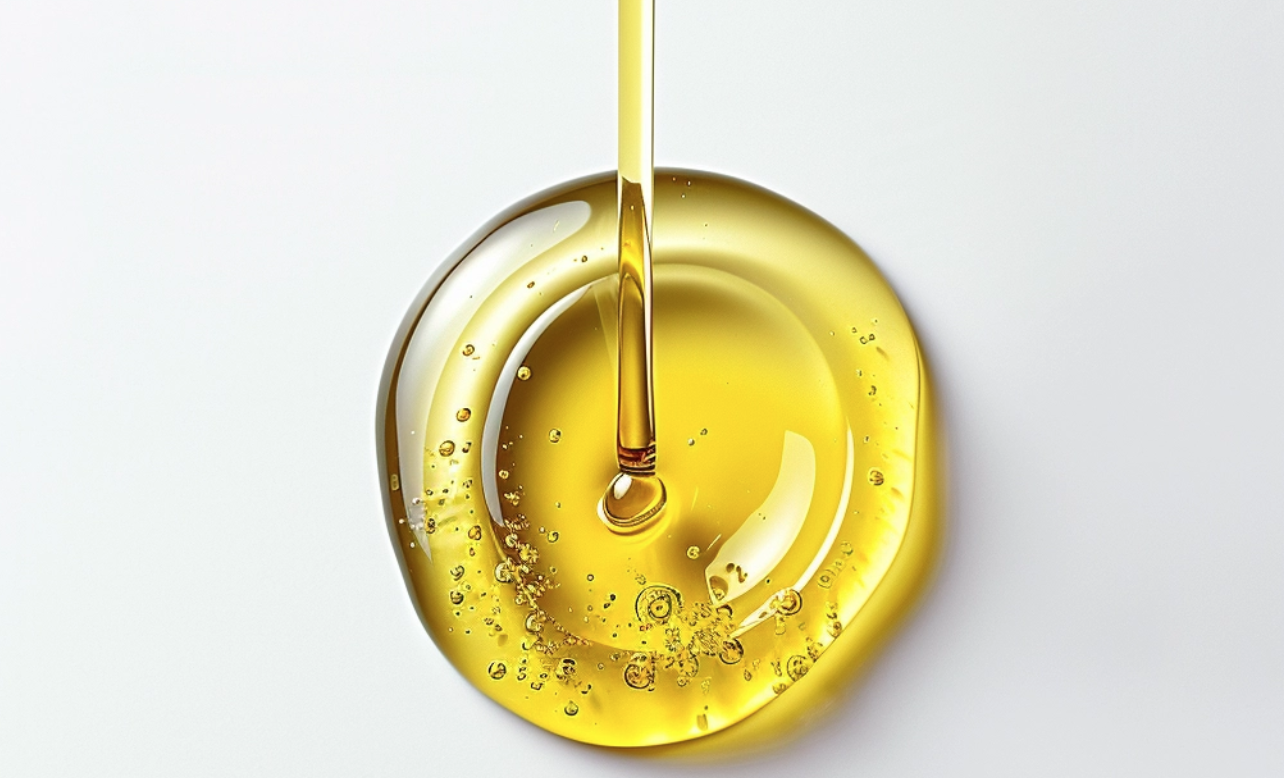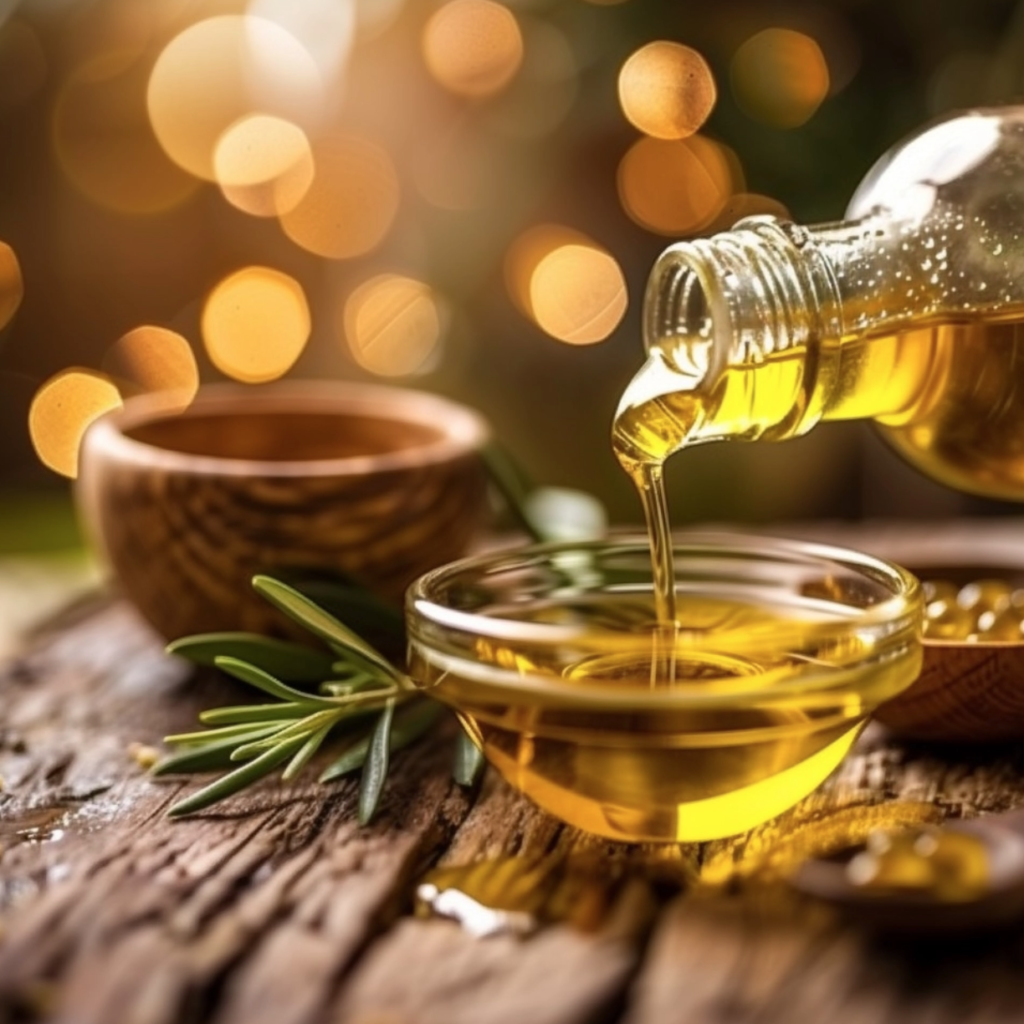Yoga Mustard Oil isn’t just any cooking oil – it’s a special ingredient packed with goodness from mustard seeds. It’s been used for ages not only to make food taste great but also for its health benefits. This unique oil can do wonders for your body, inside and out. Let’s dive into the world of Yoga Mustard Oil and discover how it can add flavour and wellness to your life.
Yellow Mustard Oil Nutrition Value

Yellow mustard oil, extracted from mustard seeds, boasts a unique flavor profile and a surprisingly rich nutritional value. Let’s delve deeper into its composition and explore its potential health benefits:
Nutritional Breakdown:
| Nutrient | Amount per 100g | Daily Value (%)* |
|---|---|---|
| Calories | 884 | 44% |
| Total Fat | 100g | 154% |
| Saturated Fat | 11.6g | 58% |
| Monounsaturated Fat | 59.2g | 296% |
| Polyunsaturated Fat | 21.2g | 42% |
| Omega-3 Fatty Acids | 6g | 300% |
| Omega-6 Fatty Acids | 15.3g | 170% |
| Carbohydrates | 0g | 0% |
| Fiber | 0g | 0% |
| Sugars | 0g | 0% |
| Protein | 0g | 0% |
| Sodium | 0mg | 0% |
| Vitamin E | 1.3mg | 9% |
Key Fatty Acids:
- Monounsaturated Fats (MUFA): Yellow mustard oil boasts a high MUFA content, primarily erucic acid (42%) and oleic acid (12%). MUFAs are linked to improved heart health by lowering bad cholesterol (LDL) and raising good cholesterol (HDL).
- Omega-3 and Omega-6 Fatty Acids: Both essential fatty acids play crucial roles in brain function, inflammation, and heart health. This oil offers a balanced ratio of omega-3 (6%) and omega-6 (15.3%) compared to other vegetable oils.
Other Potential Benefits:
- Antioxidant Properties: Yellow mustard oil contains antioxidants like vitamin E and glucosinolates, which may help fight free radical damage and reduce inflammation.
- Antimicrobial Activity: Studies suggest potential antibacterial and antifungal properties, making it a traditional food preservative in some cultures.
- Improved Digestion: Some believe it can stimulate digestive enzymes and aid digestion, although further research is needed.
Important Considerations: Erucic Acid Content: While generally safe for most people, erucic acid in high amounts can be harmful to the heart. Moderate consumption is recommended. Cooking Methods: Avoid using at high temperatures due to its low smoke point. Use it for tempering or low-heat cooking. Individual Sensitivity: Some individuals may experience digestive discomfort. Begin with small amounts and monitor your body's response.
Read Also – Arnica Hair Oil Benefits
Yellow mustard oil Benefits
This golden-hued oil, derived from the pressing of mustard seeds, is lauded not only for its aromatic punch in dishes but also for a spectrum of health benefits that cater to a holistic approach to health and wellness. Let’s delve into the multifaceted benefits of yellow mustard oil and understand why it’s becoming a favorite in kitchens and natural health practices alike.
1. Heart Health
At the heart of yellow mustard oil’s benefits is its impressive impact on cardiovascular health. The oil’s rich content of monounsaturated and polyunsaturated fats, including alpha-linolenic acid (a type of omega-3 fatty acid), plays a crucial role in maintaining healthy cholesterol levels. These healthy fats help reduce LDL (bad) cholesterol while boosting HDL (good) cholesterol, promoting a balanced lipid profile that is crucial for preventing heart disease and strokes.
2. Anti-inflammatory Properties
The natural compounds found in yellow mustard oil, such as glucosinolates and isothiocyanates, exhibit potent anti-inflammatory and antibacterial properties. These components make mustard oil an excellent remedy for infections, aiding in the fight against pathogens, reducing inflammation, and accelerating healing processes in the body. Whether it’s soothing sore throats, alleviating signs of cold, or combating skin infections, mustard oil serves as a natural safeguard for your health.
3. Skin and Hair Care
Mustard oil is a treasure trove of nutrients that nourish the skin and hair from within. Rich in vitamins E, A, and fatty acids, it acts as a natural moisturizer, combating dryness and promoting healthy, radiant skin. For hair, the application of mustard oil can enhance shine, encourage growth, and combat dandruff and scalp conditions. Its antibacterial properties also keep skin and scalp infections at bay, making it a versatile beauty aid in your natural skincare and haircare regimes.
4. Digestive Health
Incorporating yellow mustard oil into your cooking can offer significant benefits for digestive health. Its natural enzymes improve the digestive process, stimulating the secretion of digestive juices and bile from the liver and spleen. This not only aids in digestion but also promotes appetite, making it a great addition to meals for those looking to maintain a healthy digestive system.
5. Arthritis and Pain Relief
The warming property of mustard oil makes it an effective remedy for relieving pain, particularly for those suffering from arthritis, muscle aches, or joint pain. Massaging the affected area with mustard oil can increase circulation, reduce inflammation, and alleviate pain, offering a natural alternative to chemical pain relievers.
6. Respiratory Reliever
Mustard oil’s potent antimicrobial properties and its warming nature make it an effective remedy for respiratory issues. Inhaling steam infused with mustard oil can help clear congestion and ease symptoms of colds, coughs, and sinus infections, providing a comforting, natural solution for respiratory discomfort.
7. Cancer-Fighting Potential
Emerging research highlights the potential role mustard oil could play in cancer prevention, thanks to its high levels of glucosinolates. These compounds are known for their anti-carcinogenic properties, suggesting that regular consumption of mustard oil could contribute to lowering the risk of certain types of cancer.
Mustard oil can be your go-to solution for dry skin. Mix it with a carrier oil, like coconut or almond oil, and apply it to dry areas. The oil’s moisturizing properties help combat dryness, leaving your skin soft and supple. Additionally, mustard oil’s anti-inflammatory qualities can aid in healing minor skin irritations.
8. Oral Health and Oil Pulling
Embrace the ancient practice of oil pulling with mustard oil. Swish a tablespoon of mustard oil in your mouth for 15-20 minutes before spitting it out. This practice is believed to promote oral hygiene by reducing bacteria and plaque, leading to healthier gums and fresher breath.
9. Respiratory Health and Congestion Relief
Inhaling mustard oil vapors can provide relief from congestion and respiratory issues. Add a few drops of mustard oil to hot water and inhale the steam. This can help clear nasal passages and ease breathing, offering relief during cold or flu symptoms.
10. Earache Remedy
Mustard oil can be a natural solution for earaches. Warm the oil slightly and put a few drops into the affected ear. Ensure the oil is not too hot and consult with a healthcare professional if the pain persists.
Side Effects of Mustard Oil: What You Need to Know
Mustard oil, derived from mustard seeds, is renowned for its culinary and medicinal properties. However, like any other substance, it’s essential to be aware of potential side effects associated with its usage. In this comprehensive guide, we’ll explore the possible side effects of using mustard oil in simple and easy-to-understand language.
1. Skin Irritation
Direct application of mustard oil on the skin can sometimes cause irritation. This may manifest as redness, itching, or a burning sensation. To minimize the risk of irritation, it’s advisable to dilute mustard oil with a carrier oil, such as coconut or olive oil, before applying it to the skin. Additionally, conducting a patch test on a small area of skin can help identify any potential allergic reactions.
2. Gastrointestinal Distress
Consuming large quantities of mustard oil may lead to gastrointestinal discomfort. This can include symptoms such as nausea, stomach cramps, and diarrhea. It’s important to use mustard oil in moderation, especially if you have a sensitive stomach or digestive issues. Incorporating it gradually into your diet and avoiding excessive consumption can help mitigate these effects.
3. Allergic Reactions
Some individuals may experience allergic reactions to mustard oil. This can manifest as skin rashes, hives, or respiratory symptoms such as wheezing or difficulty breathing. If you have a known allergy to mustard seeds or other members of the Brassicaceae family, it’s crucial to avoid using mustard oil altogether. Always read product labels carefully and consult with a healthcare professional if you have any concerns about potential allergies.
4. Eye Irritation
Avoid getting mustard oil in your eyes, as it can cause irritation and discomfort. If accidental contact occurs, rinse your eyes thoroughly with water and seek medical attention if irritation persists. It’s also essential to handle mustard oil with care and wash your hands after use to prevent inadvertently transferring it to your eyes or other sensitive areas.
5. Potential Risk of Erucic Acid
Certain varieties of mustard oil may contain high levels of erucic acid, a fatty acid that has been associated with adverse health effects in animal studies. While commercially available mustard oil typically undergoes processing to reduce erucic acid levels, it’s still advisable to choose reputable brands that adhere to safety standards. Pregnant women, nursing mothers, and individuals with existing health conditions should exercise caution and consult with a healthcare professional before using mustard oil.
Read Also – Robusta Banana Calories







